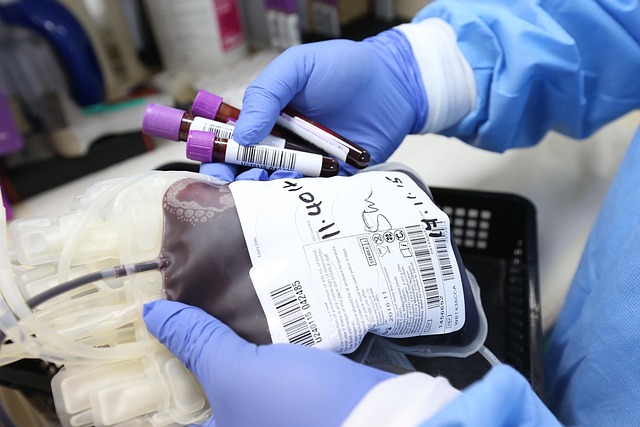Explore CNA to LPN Bridge Programs for Career Growth
CNA to LPN bridge programs are designed to help certified nursing assistants take the next step in their healthcare careers. These programs offer flexible training options and practical skills to support your transition into the role of a licensed practical nurse

How CNA, LPN and RN Roles Connect in Healthcare
Understanding the nursing career ladder helps clarify your advancement options. CNAs provide basic patient care under supervision, including assistance with daily activities, vital signs monitoring, and patient comfort measures. Licensed Practical Nurses (LPNs) perform more complex duties such as administering medications, wound care, IV monitoring, and patient assessment within their scope of practice.
Registered Nurses (RNs) represent the next level up, with expanded responsibilities including care planning, patient education, supervision of other nursing staff, and complex medical procedures. Each role builds upon the previous level’s foundation, creating natural progression opportunities. CNAs already possess valuable hands-on experience with patient care, medical terminology, and healthcare facility operations, making the transition to LPN more streamlined than starting from scratch.
The connection between these roles means your CNA experience directly applies to LPN training, reducing the learning curve and helping you excel in bridge programs designed specifically for working healthcare professionals.
CNA to LPN Bridge Program Components and Curriculum
Bridge programs typically include both classroom instruction and clinical rotations tailored to your existing knowledge base. Core curriculum components cover advanced anatomy and physiology, pharmacology, medical-surgical nursing, maternal and pediatric care, and mental health nursing concepts.
Clinical rotations provide hands-on experience in hospitals, long-term care facilities, and specialty units where you’ll practice new skills under instructor supervision. Many programs include simulation labs where you can safely practice medication administration, IV procedures, and emergency response protocols before working with actual patients.
Program lengths vary from 12 to 18 months for full-time study, though part-time options extend this timeline to accommodate working students. Prerequisites usually include current CNA certification, high school diploma or equivalent, and completion of basic science courses like anatomy, physiology, and sometimes chemistry or microbiology.
Assessment methods combine written exams, practical skill demonstrations, and clinical evaluations to ensure competency in all required areas before graduation and NCLEX-PN exam eligibility.
Flexible CNA to LPN Programs for Working Professionals
Many bridge programs recognize that CNAs cannot afford to stop working during their education, offering flexible scheduling options to accommodate your needs. Evening and weekend classes allow you to maintain your current employment while pursuing advancement, with some programs offering hybrid formats combining online coursework with in-person clinical requirements.
Part-time programs extend the timeline but reduce weekly time commitments, making education more manageable alongside work responsibilities. Some employers partner with local nursing schools to provide tuition assistance or flexible scheduling for employees pursuing LPN training, creating win-win situations for both parties.
Accelerated programs cater to students who can dedicate more time to intensive study, completing requirements in as little as 10-12 months. These intensive formats work well for CNAs with financial support or those ready to reduce work hours temporarily for faster career advancement.
Online components increasingly supplement traditional classroom instruction, allowing you to complete theory portions at your own pace while maintaining required clinical hours through local facility partnerships.
| Program Type | Duration | Schedule Format | Cost Range |
|---|---|---|---|
| Full-time Bridge | 12-15 months | Days, M-F | $8,000-$15,000 |
| Part-time Evening | 18-24 months | Evenings/Weekends | $7,500-$14,000 |
| Accelerated Hybrid | 10-12 months | Mixed Online/Campus | $9,000-$16,000 |
| Community College | 15-18 months | Flexible Options | $5,000-$10,000 |
Prices, rates, or cost estimates mentioned in this article are based on the latest available information but may change over time. Independent research is advised before making financial decisions.
Bridge program costs vary significantly based on institution type, location, and program format. Community colleges typically offer the most affordable options, while private institutions may charge higher tuition but offer more flexible scheduling or smaller class sizes. Financial aid options include federal grants, student loans, employer tuition assistance programs, and healthcare workforce development scholarships specifically for nursing students.
Additional expenses include textbooks, uniforms, clinical supplies, background checks, drug screenings, and NCLEX-PN exam fees. Some programs include these costs in tuition while others charge separately, so comprehensive cost comparison requires examining total program expenses rather than just tuition rates.
Career Benefits and Salary Advancement Opportunities
Completing a CNA to LPN bridge program significantly expands your career opportunities and earning potential. LPNs typically earn 20-40% more than CNAs, with median annual salaries ranging from $35,000 to $50,000 depending on location and work setting. Your existing experience as a CNA makes you an attractive candidate for LPN positions, often leading to quicker job placement after graduation.
Advanced practice opportunities include specialized units like intensive care, emergency departments, or surgical settings where LPNs work alongside RNs in more complex patient care scenarios. Leadership roles such as charge nurse positions or CNA supervision become available, utilizing both your clinical skills and experience mentoring newer healthcare workers.
The LPN credential also serves as a stepping stone toward RN programs, with many schools offering LPN to RN bridge options that further reduce educational requirements for continued advancement. This creates a clear pathway from CNA to potentially BSN and beyond, depending on your long-term career goals.
CNA to LPN bridge programs represent a practical investment in your healthcare career, offering structured advancement opportunities while respecting your current work obligations and experience. These programs provide the education and credentials needed to expand your practice scope, increase earning potential, and open doors to specialized nursing roles that build upon your existing patient care foundation.
This article is for informational purposes only and should not be considered medical advice. Please consult a qualified healthcare professional for personalized guidance and treatment.




